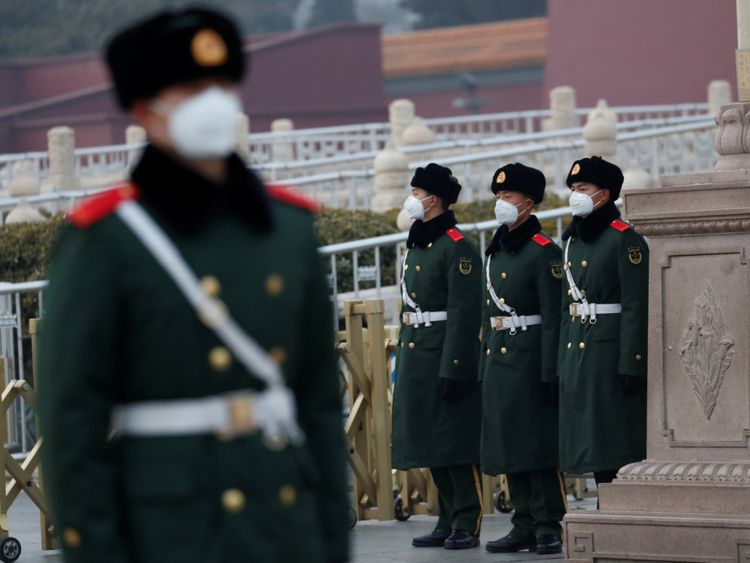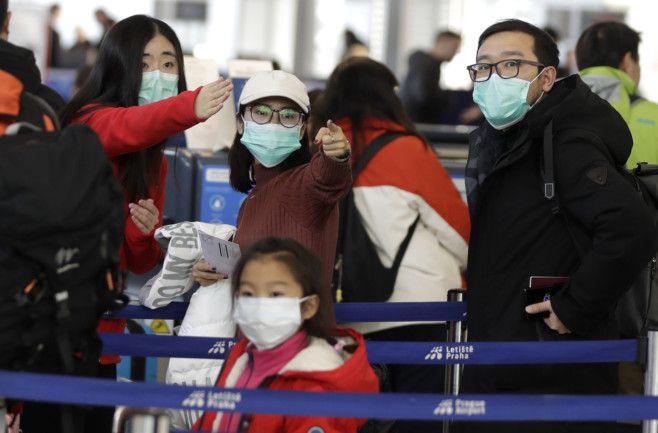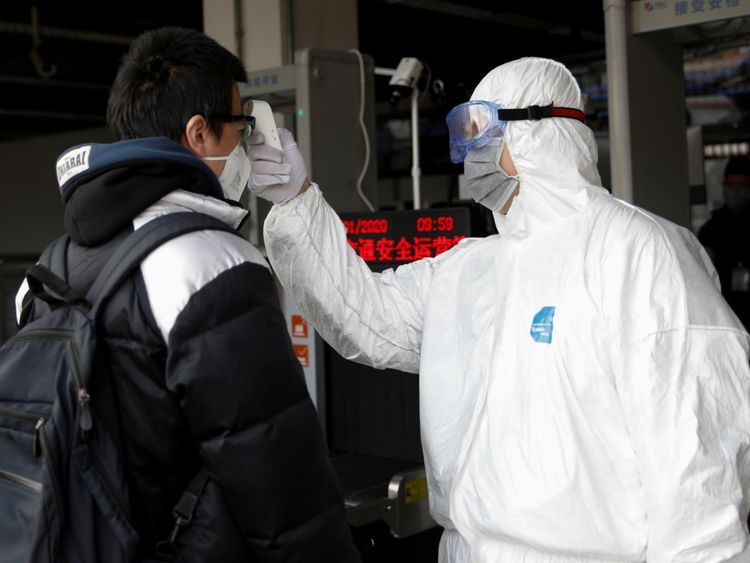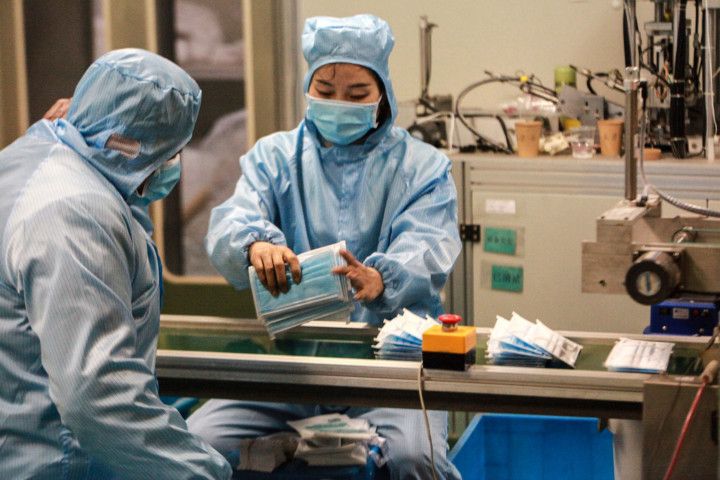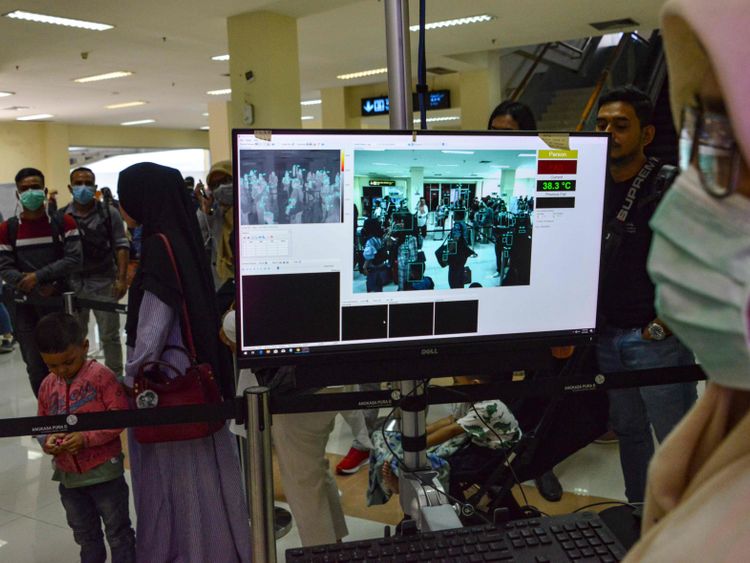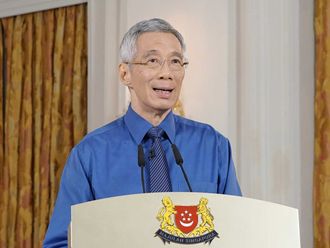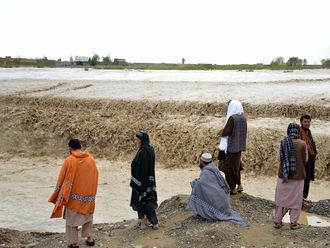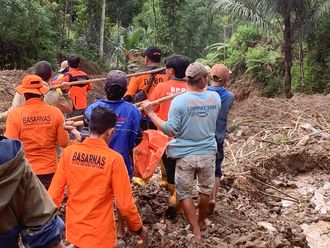Shanghai: The death toll from a coronavirus outbreak in China rose to 81 on Monday, as the government extended the Lunar New Year holiday and more big businesses shut down or told staff to work from home in an effort to curb the spread.
Chinese Premier Li Keqiang visited the central city of Wuhan, the epicentre of the outbreak, as the government sought to signal it was responding seriously.
The total number of confirmed cases in China rose about 30 per cent to 2,744, with about half in Hubei province, the capital of which is Wuhan. But some experts suspect the number of infected people is much higher.
As worry grew around the world, Chinese-ruled Hong Kong, which has had eight confirmed cases, banned entry to people who had visited Hubei in the past 14 days. The ban did not cover Hong Kong residents.
The nearby gambling hub of Macau, which has had at least one case of the flu-like virus, imposed a similar ban on those arriving from Hubei, unless they can prove they are virus-free.
The city of Haikou on Hainan island in southern China said tourists from Hubei would be quarantined for 14 days.
“Hubei people are getting discriminated against,” a Wuhan resident complained on the Weibo social media platform.
The number of deaths from the virus in Hubei climbed to 76 from 56, health officials said, with five deaths elsewhere in China.
While a small number of cases linked to people who travelled from Wuhan have been confirmed in more than 10 countries, including Thailand, France, Japan and the United States, no deaths have been reported elsewhere.
Li is the most senior leader to visit Wuhan since the outbreak began. Clad in a blue protective suit and mask, he inspected efforts to contain the epidemic and spoke to patients and medical staff, the government said.
Wuhan, a city of 11 million people, is in virtual lockdown and severe limits on movement are in place in several other Chinese cities. Much of Hubei province, home to nearly 60 million people, is under some kind of travel restriction.
The government is extending the week-long Lunar New Year holiday by three days to February 2, in a bid to slow the spread of the virus. The Lunar New Year is usually a time for travel by millions, but many have had to cancel plans.
INCUBATION
Investors are worried about the impact on travel, tourism and broader economic activity.
During the 2002-2003 outbreak of Severe Acute Respiratory Syndrome (Sars), a coronavirus that originated in China and killed nearly 800 people globally, air passenger demand in Asia plunged 45 per cent. The travel industry is more reliant on Chinese travellers now than it was then.
The newly identified coronavirusvirus is believed to have originated late last year in a Wuhan market illegally selling wildlife.
Much is not known about it, including how easily it spreads and just how dangerous it is. It can cause pneumonia, which has been deadly in some cases.
National Health Commission Minister Ma Xiaowei said on Sunday the incubation period could range from one to 14 days, and the virus was infectious during incubation, unlike Sars.
The World Health Organisation (WHO) estimated an incubation period of two to 10 days. It is also not clear if an infected person can pass it on before they show symptoms.
Wendy Barclay, a professor and virologist at Imperial College London, said many of the respiratory viruses that spread among humans do transmit even in the absence of symptoms, and it would not be surprising if the new coronavirus also did.
“If this does prove to be the case then controlling the spread does become more of a challenge, and measures like airport screening are unlikely to stem the virus effectively” she said.
‘OVERWHELMED’
Australia confirmed its fifth case on Monday involving a woman on the last flight out of Wuhan to Sydney before China’s travel ban.
Health Minister Greg Hunt told the Australian Broadcasting Corporation (ABC) authorities aimed to get about 100 Australian children and young people out of Wuhan. Countries including the United States are working to evacuate their citizens.
One father of two, Nathan Wang, told the ABC his wife was stuck in Wuhan with the children. “We absolutely want the children to come back, because hospitals in Wuhan are overwhelmed,” he said.
Images on social media showed hospital corridors packed with people seeking treatment.
Airports around the world have stepped up screening of passengers from China, although some health experts have questioned its effectiveness.
Last week the WHO stopped short of calling the outbreak a global health emergency, but some health experts question whether China can contain the epidemic.
WHO Director-General Tedros Adhanom Ghebreyesus is due to travel to Beijing to meet officials and health experts.
Some of China’s biggest companies have been affected, with hotpot restaurant chain Haidilao International Holding shutting branches nationwide from Sunday until Friday.
Gaming giant Tencent Holdings Ltd advised staff to work from home until February 7, and e-commerce firm Alibaba removed vendors’ offers of overpriced face masks from its online Taobao marketplace as prices surged.


